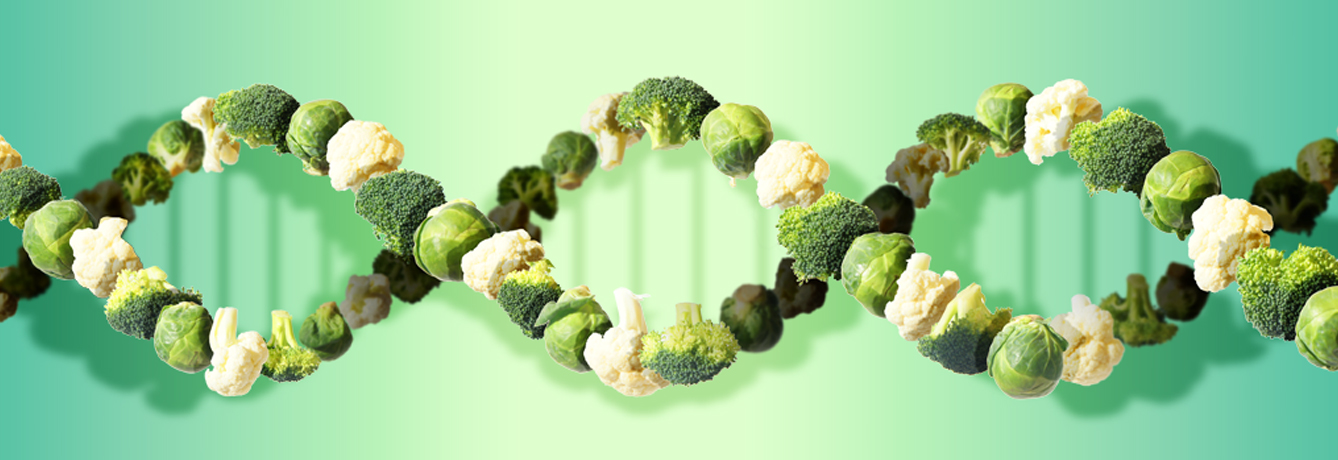When we are told someone has “good genes,” it sounds as if longevity and youthfulness were simply luck of the genetic draw. Well, recent research suggests you can bring out the best in your genes with a better diet.
Norwegian scientists looked at 100 obese, male smokers — subjects who were, if you will, abusing their genes by subjecting them to carcinogens, unhealthy food, and adipose-induced inflammation. They then divvied the men into three groups. Group one was given a weekly basket of antioxidant-rich foods, including kale, cabbage, Brussels sprouts, broccoli, berries, pomegranates, plus nuts, seeds and olive oil. Group two was given a weekly sack of kiwis (equivalent to 3 a day). Group three, the control, followed their regular diet.
After two months, blood tests were administered to randomized sub-groups from each category. Compared to the controls, the antioxidant-rich diet group had the highest number of altered genes (44), roughly five times more than the kiwi group. Specifically, these were genes associated with how cells communicate, defend against free radicals, and cope with inflammation. In practical terms, this translates into a reduction in disease risk, and the negative effects of aging.
What’s behind such benefits? According to Dr. Bruce Ames’ “triage theory of DNA damage,” a nutrient-rich diet allows the body to attend not just to immediate needs, but to long-term DNA care. For example, vitamin B6, supplied abundantly by bananas, red bell peppers, and walnuts — might help support DNA repair. Beyond micronutrients, certain plant compounds – for example, the sulphoraphane found in cruciferous vegetables such as kale, cabbage, and cauliflower, activates the body’s own antioxidant defense systems, reducing disease risk, even in the face of genetic predisposition.
Bottom line: Don’t resign your health prospects to genetic fate. Genes — good, bad, or middling — can be made better by the choices we make daily in diet and lifestyle.
Published December 1, 2013



